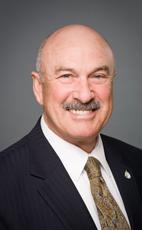Mr. Speaker, I listened to the hon. member as she spoke about her objection to this great free trade agreement that we are debating now and which looks as though it will come to fruition.
I listened with interest to her criticism of the shipbuilding aspect of it but I also listened when the minister spoke about the agreement and the protection put in it to protect, for many years, our shipbuilding industry.
However, I find it rather curious that here we are creating hundreds of thousands of jobs and perhaps millions of man-hours for people who work in an industry that we all know was at risk, and, in one particular case, the Davie Yards, which was in financial distress and has been for some time, how this bodes well for the health of that particular industry.
I do not know how the member can construe the tremendous investment by the Minister of National Defence and the procurement by the Canadian government with regard to defence contracts, in particular, the refurbishing of our fleet, to be a negative. My goodness, I do not know how this could be a negative. It actually bodes well for employment and the long term viability of our shipbuilding industry.
Why does the hon. member and her party, time and time again, vote against the very thing that creates employment and brings back vitality to that industry?

